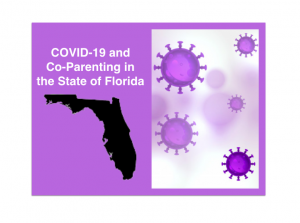 The times we are living in are unprecedented. As “non-essential” businesses are closing and schools seem to be either closing or “going online,” the endless spring break has created a situation where many co-parents lack the necessary guidance that they need to proceed these dark waters in effectively parenting. Court orders are drafted to provide reasonable guidance for circumstances, but the current status of a national health emergency is not a provision contained in parenting plans. A recent study of Americans found that the greatest current fear is that of “the unknown,” and when you do not know how to move through this situation regarding your child, that fear of the unknown is amplified.
The times we are living in are unprecedented. As “non-essential” businesses are closing and schools seem to be either closing or “going online,” the endless spring break has created a situation where many co-parents lack the necessary guidance that they need to proceed these dark waters in effectively parenting. Court orders are drafted to provide reasonable guidance for circumstances, but the current status of a national health emergency is not a provision contained in parenting plans. A recent study of Americans found that the greatest current fear is that of “the unknown,” and when you do not know how to move through this situation regarding your child, that fear of the unknown is amplified.
Living in the eclipse of COVID-19/Corona has made many feel helpless, so what should you do to prepare for the virus with your co-parent?
Below are reasonable steps that every parent should be taking with their spouse or other parent. Just because you may be living in a shared household, or under a timesharing parenting plan, communicating effectively about your plan, boundaries, and how to address the needs of your children is paramount to having a successful outcome for your minor children.
Step 1: Stay Informed.
Relying on fact-based sources is key to making good decisions. While memes on Facebook are funny, or listening to a friend’s second information makes for good conversation, when you are making a plan rely on the Center for Disease Control (CDC), the World Health Organization (WHO), and local health departments, in understanding what you should be looking for as symptoms, signs, and limitations in your area is key.
Step 2: Big Picture Thinking
This is a global pandemic, and the virus does not discriminate in who becomes effective. The only known tools that we currently have to stop the spread of the virus is to maintain “social distancing” principles, and good health hygiene like handwashing. While the landscape of our nation’s workplaces, schools, and social interaction is evolving, it’s important to maintain these practices and to be on guard for situations where you and your child can be at risk.
Keep in mind that while many co-parents find themselves unable to agree on some things, one tenant that remains true is: Parents want their children to be healthy and virus free and should work together to put that priority before all others. No one has the definitive answers right now, and slight differences between you and your co-parent as far as approaches to this situation need to be resolved as both you consider the “best interest of the child.”
Step 3: Use online resources.
If you have previously been unable to effectively communicate, using apps like TalkingParents, Our Family Wizard, AppClose, are great platforms to communicate with your co-parent about your child. Using video conferencing for your child’s communication is also important for both parents so that they know that your child is healthy, and you can discuss what precautions are being taken. Seeing that your child is vivid and happy is essential to knowing that their well-being is managed by both parents.
Step 4: Make an emergency Parenting Plan.
Almost every Parenting Plan contains provisions that the parents can come to temporary agreements regarding timesharing and parental decision making. This is a prime situation where the courts are relying on parents to get through this situation by working together. Both parents have input as to important issues to draft a temporary agreement will ensure that during this time both parents are having a unified front to the epidemic. Issues to consider include:
Based on your children’s age and maturity, how do you want to educate them on the virus and how this will impact them directly?
If one parent cannot work from home during online schooling or school closures, how can the other parent help out to ease in transition?
Both parents need to be honest about the health situations at their homes, and if a family member at either home is sick, how will this affect the timesharing and what precautions should be taken?
If the parents or children become sick, how do you plan to make arrangements for care under the current quarantine requirements?
How do you plan to handle costs or other expenses for the child’s treatment, especially if one parent is unable to work due to required closures?
These are just a few issues that should be addressed, but speaking with an experienced family law attorney can help you to consider other issues that may be special to your family. We are here to help you and your family to navigate this unchartered territory and provide you with peace of mind in moving forward in a world that is reshaped daily by new information. Stay healthy and work together.
 Jacksonville Divorce Lawyer Blog
Jacksonville Divorce Lawyer Blog

